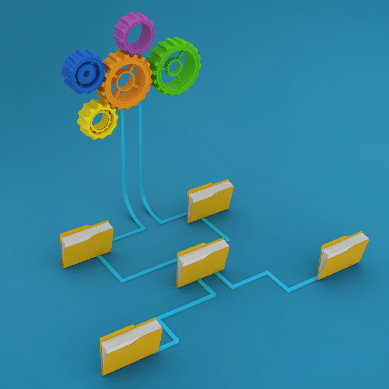Data protection laws are becoming more stringent by the day as the threat of cybercrime has escalated in recent years. Ensuring data compliance should be a top priority for any business today if they want to avoid costly sanctions and maintain trust with their clients and partners.
What Is Data Compliance and Why Does It Matter?
Data compliance comprises an organization’s policies and procedures for protecting sensitive, confidential or regulated data from theft, misuse, or compromise according to data privacy laws and industry standards. Such compliance also involves monitoring where data is being stored and how it’s being used throughout the company.
Businesses should take responsibility for their cybersecurity postures for several reasons:
- Lowering the chance of a data breach and all the associated financial and legal troubles
- Passing cybersecurity and IT-related audits to gain trust in the industry
- Building trust with customers by addressing their data privacy concerns
- Taking control of your data compliance strategy to remain resilient
New risks arise every time an organization starts working with a new third-party, expands into another region, or adopts a new digital software platform. Data compliance is then a cyclical process rather than a one-time consideration.
Start Getting Value With
Centraleyes for Free
See for yourself how the Centraleyes platform exceeds anything an old GRC
system does and eliminates the need for manual processes and spreadsheets
to give you immediate value and run a full risk assessment in less than 30 days
Examples of Data Compliance Regulations
Some international regulations cover specific industries, while others are more general and cover a wide variety of companies. Here are a couple of examples:
General Data Protection Regulation (GDPR)
The GDPR was established by the European Union to protect the personal data of its citizens and is one of the most stringent in its enforcement.
Companies who are obligated to comply with GDPR must have procedures and policies covering every step of the data lifecycle. Even beginning to handle personal data requires a lawful basis, and the validity must be continuously proven at every step.
Any business dealing with the personal information of EU citizens must adhere to the regulation regardless of the company’s location. So companies that operate globally must also pay attention to its requirements.
The Health Insurance Portability and Accountability Act
HIPAA, which applies to the health and pharmaceuticals industry, ensures the safety and proper use of Personal Health Information (PHI) belonging to individual patients.
In addition to hospitals and other health service providers, any firm that handles or accesses PHI is also held under this standard, from software vendors to insurance providers.
Payment Card Industry Data Security Standards
Developed by major credit card companies, the independent Payment Card Industry Security Standards Council, PCI-DSS is one example of a non-governmental body imposing industry standards on relevant businesses.
Any company that works with cardholder data must have protections in place on the access, storage, and general management of that information. Compliance with PCI-DSS applies to not only credit card payment service providers but also extends to any company that takes card payments in any way.
Best Practices For Data Security Compliance
How do you ensure data compliance? Developing a data privacy compliance program through these strategies should be your first step.
Develop a Data Protection Strategy
A data protection strategy must not only be resilient to prevent data breaches but also be up-to-date with current cybersecurity standards and evolving compliance regulations.
A few tactics to start with are:
- Identification of sensitive data owned by your company and where it’s located
- Streamlining of the business’s data center to allow for awareness and limited access to the stored data
- Adherence to IT security compliance standards so that IT administrators can provision resources in a dynamic storage environment
- Data back-up and loss protection through replication so that you have a second copy to work with should the first one fail.
And don’t forget to analyze your data protection measures regularly and address any changes in industry standards or laws. Regular audit procedures are recommended here.
Designate a Data Compliance Specialist
Try to find a single person who can act as the data compliance administrator. This individual must have knowledge, credibility and trust within the organization and be willing to communicate with employees on the ground, executives and department heads regarding data security standards.
As a side note, the GDPR and PIPL actually mandate an individual to take up the position known as the Data Protection Officer, though hiring one anyway is still a positive step forward.
Keep Records on Data Protection Activities
Recording all your data compliance policies, processes, efforts and auditing results is essential. You are supporting awareness of your security posture so that you can recognise problems in data compliance before they transpire. You are also able to analyze records to learn from and act as evidence behind strategic decisions.
Records are essential in the event of an audit or inspection. You will have detailed records to give to security auditors that show that you care about data compliance. Some regulators often see this evidence as a reason to reduce penalties.
Start Getting Value With
Centraleyes for Free
See for yourself how the Centraleyes platform exceeds anything an old GRC
system does and eliminates the need for manual processes and spreadsheets
to give you immediate value and run a full risk assessment in less than 30 days





